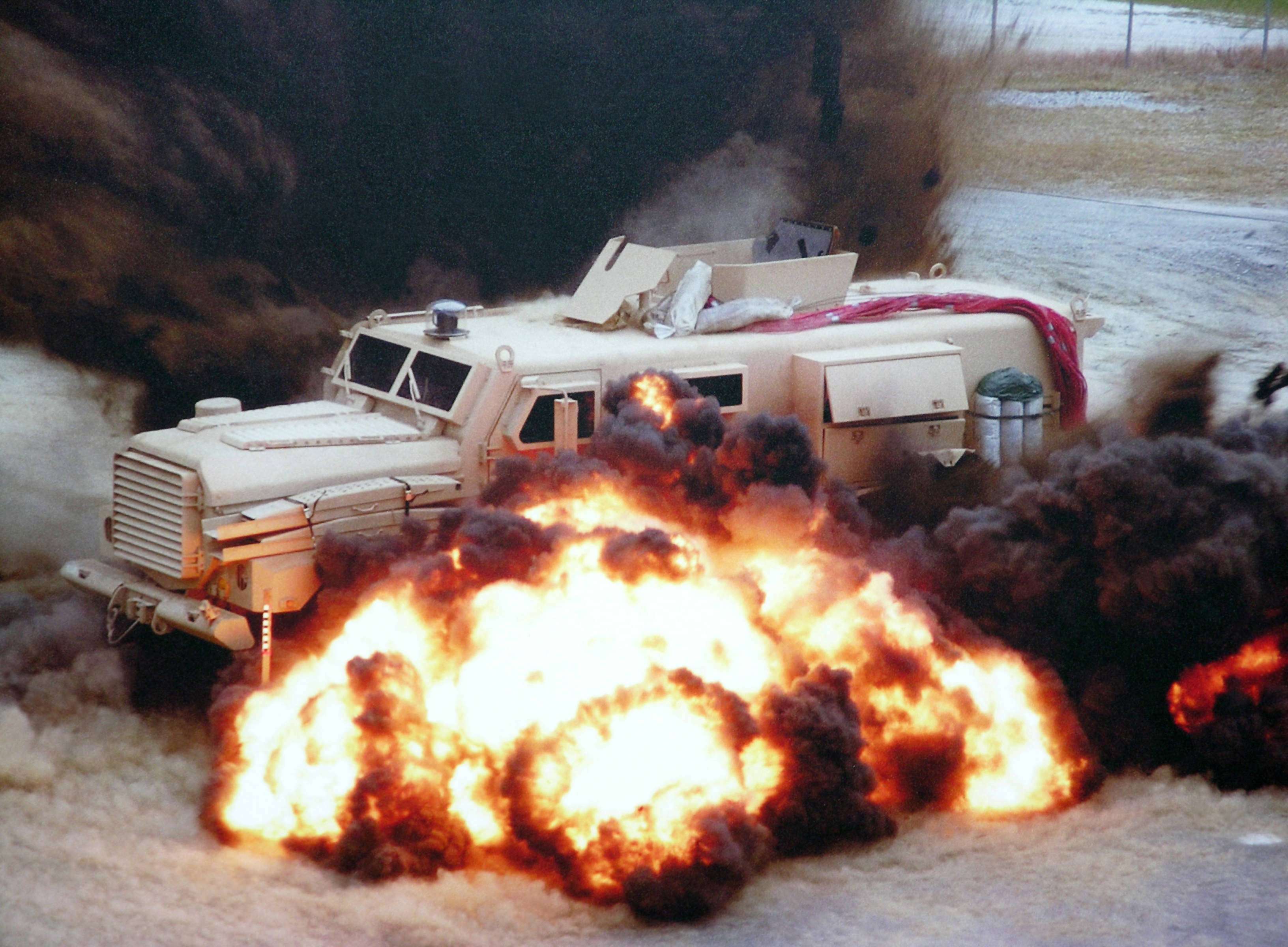Small-Town Cops Get Armored Vehicle. 'It's definitely a big icebreaker with the kids.'
Much of the impetus for small-town police departments with military vehicles, weapons and tactics comes from the feds themselves.

Watertown, Connecticut, a city of 22,000 people with crime rates that seem to be enviably below the national average, now has itself a slightly used Mine-Resistant Ambush Protected armored vehicle. Nearby Waterbury has one, too. All they had to pay for the military surplus hardware was a few grand for shipping and handling (new, the vehicles run $733,000)—and maintenance from here on out. And now they have themselves some mobile armor designed to survive insurgents armed with small arms and explosives.
"It's a great opportunity for the public to learn about the police and what we do," says Watertown Police Sgt. Curt Molnar. "It's definitely a big icebreaker with the kids."
And brick-breaker, and timber-breaker, and cinder-block breaker…
Writes Bill Bittar at Stars and Stripes:
WATERTOWN, Conn. — When Waterbury's Emergency Response Team set out to arrest two suspects in a home-invasion case early this month, they went in force: Two heavily armored trucks led a convoy of officers to nab the suspects at a house on Laurel Street.
The mine-resistant, ambush-protected vehicles used in the raid were acquired for free by Watertown and Waterbury, which are among 11 Connecticut police departments to own such gear.
Watertown Police Sgt. Curt Molnar said his department shares its MRAP as a regional vehicle with Waterbury, Naugatuck Valley Community College, Wolcott and Middlebury.
"You hope not to use it much, because it could mean there's a shooter or a serious call," Molnar said.
Just a few weeks ago, the same publication pointed out, "MRAP armored troop carriers, night-vision rifle scopes, camouflage fatigues, Humvees and dozens of M16 automatic rifles are just some of the tools that have found their way to Michiana police, courtesy of the federal government."
Reason has covered the ongoing militarization of policing for years, well before it hit the national radar as a serious concern (see our video, below). The American Civil Liberties Union recently reported on the phenomenon, cautioning:
Across the country, heavily armed Special Weapons and Tactics (SWAT) teams are forcing their way into people's homes in the middle of the night, often deploying explosive devices such as flashbang grenades to temporarily blind and deafen residents, simply to serve a search warrant on the suspicion that someone may be in possession of a small amount of drugs.
Even the federal government's own Justice Department is concerned. Karl Bickel, a senior analyst in the DOJ's Community Oriented Policing Services Office, wrote this past December:
Police chiefs and sheriffs may want to ask themselves—if after hiring officers in the spirit of adventure, who have been exposed to action oriented police dramas since their youth, and sending them to an academy patterned after a military boot camp, then dressing them in black battle dress uniforms and turning them loose in a subculture steeped in an "us versus them" outlook toward those they serve and protect, while prosecuting the war on crime, war on drugs, and now a war on terrorism—is there any realistic hope of institutionalizing community policing as an operational philosophy?
Of course, much of the impetus for small-town police departments with military vehicles, weapons and tactics comes from the feds themselves. That free MRAP in Watertown comes courtesy of the Defense Logistics Agency's 1033 program, which supplies law-enforcement agencies with military surplus. "Preference is given to counter-drug and counter-terrorism requests."
The program's current catalog (get your shopping done early!) lists all sorts of goodies, including tactical vehicles and assault rifles. It's a bargain many police departments can't resist.
And it's such an icebreaker with the kids.


Show Comments (31)